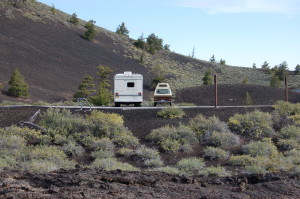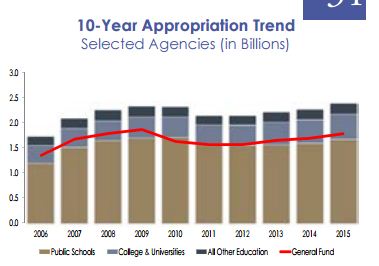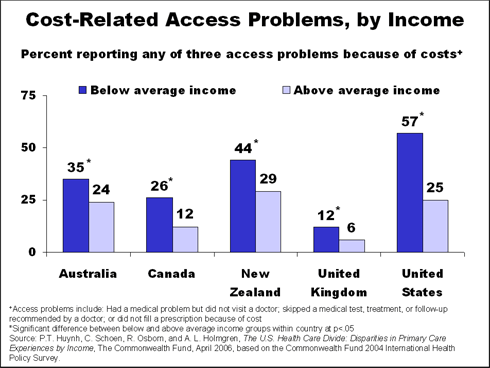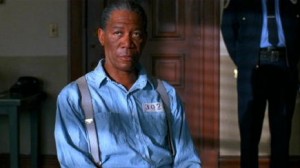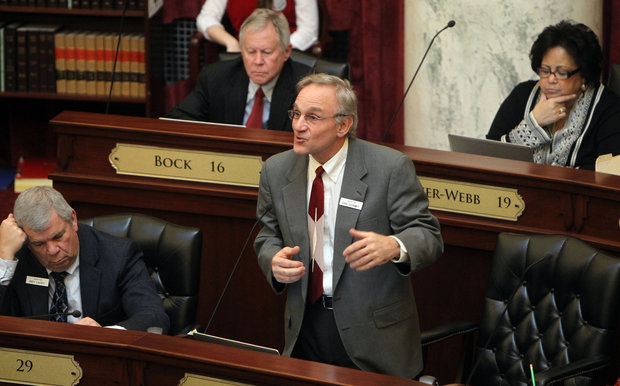
Debate on the floor but long before adjournment
It was late and we all were very tired. I could look around the Senate floor and see the sagging shoulders and the drooping eyelids. The “Ayes” were soft and the rare “Nays” even softer as we were passing the last of the budget bills, expecting to get done that day before 7PM. We all wanted to leave. The old adage of giving the last presentation before lunch or adjournment was never more true, but I had a budget bill to present that was an opportunity to say some things I thought needed to be said. I just didn’t think they would be heard. The opportunity was forsaken. I missed it. And so did the state of Idaho. I have my regrets, so I say it here.
I have served two years now on JFAC, the Joint Finance and Appropriations committee and have become very familiar with the many Health and Welfare budgets. Legislators can hate working these; they can be a morass of matching Federal funding that requires certain state investment to receive the match and metrics to show. One can feel like a teenager who hates school but has to get certain grades to get your allowance. Still, I worked to understand them, push here, pull there, cut this, and add those to best serve our state. I get very little help from other legislators. Since these budgets must pass both House and Senate, last year in 2013 I even had to conscript a House member to work on them so there would be a sponsor on that side to explain them.
There was even worse than reluctance to do the work. Last year (2013) there were legislators who sat in on the working meetings with the analysts and me so they could get ammunition to vote against the budgets. They offered no suggestions, no alternate proposals but sat through it all so they could try to understand the arcane details. Some even volunteered to make the budget motion in committee. I asked them to since I thought everyone was getting tired of my voice; maybe I thought I could enroll some help in this work. Instead some would agree to make the motion in committee, but then would debate against the motion and vote against the motion on the floor. This year I did more work alone.
There are 13 divisions to the Health and Welfare Department, but the biggest budget, over 80% of the whole $2.5 Billion, is in the Medicaid division, and that was the last-day budget I was carrying before the very tired Senate. I wanted to say some things, because there are some things I had learned, and I wanted to help my fellow Senators to learn them, indeed, our state. But I wasn’t sure there would be an audience. Heck, I doubt many will read this. Still, I need to say it. Thank you for reading.
First, let’s understand Medicaid. It is essentially a federally subsidized, state managed health insurance program for the poor and disabled. There are three kinds of Medicaid insurance here in Idaho. The Enhanced Plan covers the aged and disabled. It enrolls about 40,000 ( thus <20% of the total Medicaid population) Idaho children and adults yet it costs over half the total budget. The dual eligible (Medicaid AND Medicare, think impoverished nursing home population) comprise about 10% of the population but spends about 30% of the budget. The universal 80:20 rule applies to Medicaid spending too; 80% of costs come from 20% of the population. The Medicaid Basic plan covers pregnant women and some children below a certain income level (generally less than about 150% the Federal Poverty Level, FPL). Here we have 75% of the enrollees but about 30% of the costs.
Under the federal Medicaid law, states can set eligibility levels. Idaho makes it tough to qualify for Medicaid. Here is a graphic of which plan has what eligibility in Idaho:
For reference, 100% FPL = Income for a single adult $11,500/ year, for a family of three $19,500

Now think about the Affordable Healthcare Act, basically a reluctant deal between the federal government and the private health insurance industry. The goal of this program was to get everybody covered by insurance, so that the cost shifting hospitals and doctors do when they provide uncompensated care can be limited. This is the first step needed to control healthcare costs in this country. The exchange was a tool to get individual and small group insurance affordable and to bring market forces to bear on the cost of these products. But private insurance didn’t want to deal with the people they hadn’t dealt with before, the working poor whose income was below the federal poverty level. So, the decision was to get these folks enrolled in Medicaid. The federal government would pay for it, 100% of the cost for the first 3 years, then at a reduced rate down to 90% in 2024. But states could buy into this plan or not according to the Supreme Court in June 2012. Idaho convened a workgroup to study whether this made sense. After much work we recommended the governor support it. We could get rid of the Catastrophic fund and county indigent programs that cost the state $70 Million a year. Prisoners released to parole could receive some level of support in the community. But the governor and the legislature flinched from embracing anything to do with ObamaCare after a painful exchange confrontation the year before. So we tired Senators were wanting to go home and I needed to present a Medicaid budget for 2015 that was not everything I thought it should be.
SB1424 was on the schedule for a long time. It got held up for a day or two because the House killed a bill the Senate had passed, so Senate leadership needed a hostage to force some negotiations. The deal was made but I got an extra day to contemplate my debate on the Medicaid budget presentation. Should I beat the Republicans about the head and shoulders for their unwillingness to consider the change in eligibility? Should I hammer on the fact that a change in eligibility would have not cost the Idaho taxpayer one thin dime, yet brought coverage to 70,000 low wage, working Idahoans? Should I rail about political courage? Should I pound my chest about the millions I had saved over the governors recommended budget as I had studied the details? Should I wax on about how health is a measure of productivity and pursued happiness, not dependency and poverty? I chose not to. I stuck to the budget, the numbers, the 20,000 foot view of a complicated subject. We were too tired to deal with the devilish details. But here’s what I could have said:
Mr. President, I bring to the Senate for your consideration the fiscal year 2015 Medicaid budget. It includes$1.3 billion for approximately 70,000 disabled adults and children who meet eligibility, and $500M for approximately 175,000 eligible pregnant women, children and adults. It is a lot of money. In other budgets we have already approved the money for the processes, the people and the functions to determine who is eligible. This appropriation bill does not address where we have set those limits for who might be eligible. Such would be a policy decision that we have not considered this year. I would like to point out to this body that if we had changed those limits to those recommended by the governors work group, this budget would be bigger, but it would not have cost the Idaho taxpayer another dime; in fact we could have skipped a previous budget for $35 million dollars. We have also passed a bill in this body to improve prison policies, Justice Reinvestment, and a policy decision to reform eligibility would have provided services for parolees in the community, to support their success. And an eligibility change might have gotten 70,000 Idaho working folks access to primary and preventative care, to keep them productive and strong. I remind you that businesses asked us to do this. We did not.But I must speak to the bill before us.
So, fellow Senators, such is not in this budget. But it is a good budget. I have worked for weeks to limit any waste, to trim what I could to meet the needs of those currently eligible. What is more, the Senator from 24 and I worked all summer with a large group of interested stakeholders to reform all aspects of health care delivery and payment in Idaho, to ensure that we provide the right care, at the right place, at the right time for the right price. Idaho is poised to do the right thing.
But today all I ask is that you support this small step to take us in a direction I’m not sure we should be headed. You see, 95% of this budget goes directly to payments to doctors and hospitals for the care they provide. Therefore, about 3% is going to managing these payments. Almost nothing goes to managing the care that is provided, or incentivizing patients or providers to give appropriate care. That is the work we must do.
For those opposed to any consideration for expanded eligibility I say, this one small step to enrolling people into a manageable, transparent payment system is a step we must have the courage to take. There is no other way to manage our county’s runaway healthcare costs than to get everyone involved in a manageable system. Markets cannot be effective when costs are constantly shifting and when price and value are hidden from the consumer. The vital work to change this system cannot be delayed. It will take more than a late session vote, more than political courage, more than the politics of getting reelected. It will take another summer or two, maybe even some fall and spring work to get this state on the road to prosperity. Because our ability to manage healthcare costs is the golden ring on this merry go round of public policy. This problem defines our national debt, not just our states future prosperity. We all should be reaching for the golden ring as we spin. But that is not what is in this bill. For now, at the end of this long and tiresome day, at the end of this compressed session, all I can do is ask for your “Aye” vote. Mr. President, debate is open.
I didn’t say this to my fellow state senators. I stuck to “just the facts m ‘am” approach and the debate was weak, including mine. The Medicaid budget passed the Senate 26-9, and then the House 44-26 and we adjourned Sine Die. Maybe another day we can have this discussion. I don’t know about the courage it will take, but it will take a lot of work.

